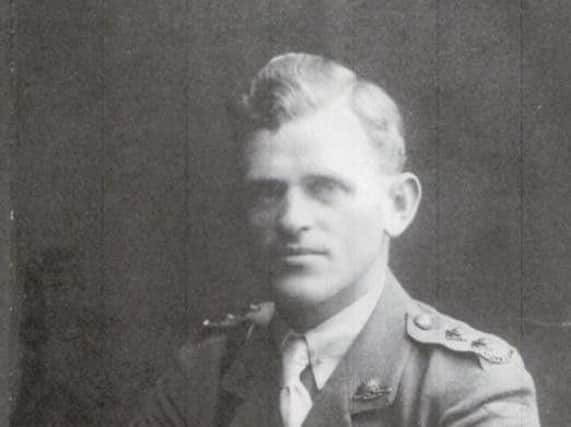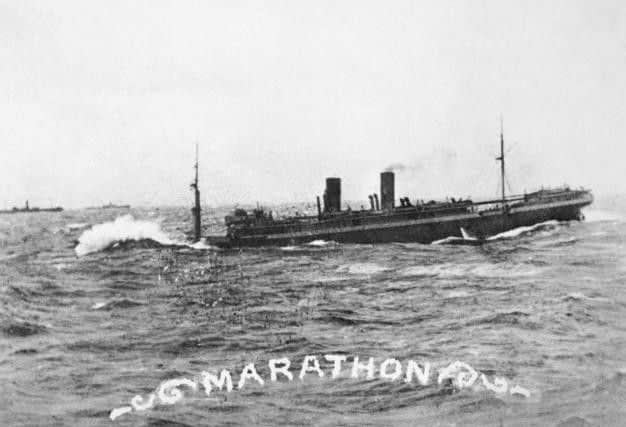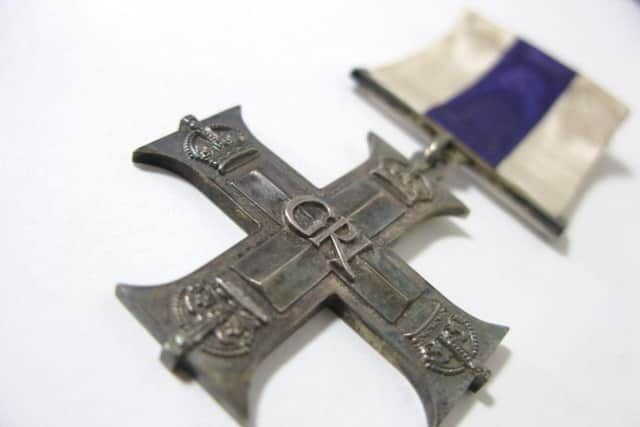Chorley farmer who returned to Europe to fight in war


Henry Kitching was born on October 31, 1887, the eldest son of William and Jane Kitching of Primrose Hill Farm in Euxton.
His early years were unremarkable as he attended St Mary’s RC School, in Euxton, and after leaving school he worked on his father’s farm.
Advertisement
Hide AdAdvertisement
Hide AdBut his feats in service of his country were anything but unremarkable and were recently unearthed by his relatives


His heroic story was discovered by Edward Almond, of Leyland, whose grandmother was Henry’s sister.
He recalls during the 1950s he read a letter relating to one of his grandmother’s brothers winning a medal in the First World War but the letter was lost and he could not remember which medal it was or which of his grandmother’s four brothers it was awarded to.
Mr Almond was researching life in Leyland during the Great War and he decided to delve further into his family history when he found his answer on the other side of the world from the Australian Military Records.
Advertisement
Hide AdAdvertisement
Hide AdHenry had emigrated to Australia at the age of 21 to pursue his farming career and arrived in Sydney on October 21, 1909, shortly before his 22nd birthday.


He eventually settled in Myall Creek in New South Wales, working as a farmer, as he had back in his Lancashire home.
When war was declared in Europe in 1914, nations throughout the British Empire took up the call to arms.
Following a medical examination in December 1915, Henry joined the Australian Army on January 12, 1916.
Advertisement
Hide AdAdvertisement
Hide AdHe undertook initial training at the Armidale Showground, in New South Wales, where the 33rd


Battalion was formed and Henry was placed in ‘C’ Company.
On May 4, he embarked at Sydney on the ship HMAT A74 Marathon and set sail for Devonport, in Plymouth.
While on the ship Henry was promoted to sergeant on May 23 and the crew finally arrived in Devonport on
July 9.


Henry’s training continued when he was sent to the Physical Training and Bayonet Fighting School at Aldershot, rejoining his battalion on September 29.
Advertisement
Hide AdAdvertisement
Hide AdThe 33rd Battalion left Southampton by paddle steamer on November 21, 1916, arriving at Le Havre, in France, the following day, where they moved onto No.1 rest camp. This would be their base for the next few months and where they would endure the bitter winter of 1916-17.
Henry’s first major engagement in the war was the Battle of Messines, which was launched on June 7, 1917. The Battle of Messines was notable for the detonation of 19 enormous mines which contained 1,000,000 tons of explosives.
During the fight, Henry was wounded by a bullet in his left foot and was placed in hospital for a short period.
On August 30 he was promoted to Company Sergeant Major (Class II) and received further promotion when he was made a 2nd Lieutenant on November 3.
Advertisement
Hide AdAdvertisement
Hide AdHe returned to England in January 1918 for two weeks on leave and more than likely visited his parents, who were now living in Prospect Terrace, in Leyland, as well as family and friends.
Two days after returning to France from leave he was admitted to hospital with scabies but discharged shortly after to rejoin his battalion.
It was on March 30, 1918 when Henry’s next military engagement occurred and this would be his most
significant. His citation in the London Gazette describes the heroic deeds for which he was awarded the Military Cross, “For conspicuous gallantry and devotion to duty.
Advertisement
Hide AdAdvertisement
Hide Ad“On 30th March, 1918, this Officer was in command of the left flank of the counter attack launched by the Battalion on the Marcelcave-
Aubercourt line.
“In face of heavy machine gun and rifle fire he led his platoon forward with great dash. He succeeded in getting the enemy on the run, and although he had only 10 men left and was entirely cut off from both flanks he continued his advance.
“He consolidated a strong point about 800 yards East of Marcelcave and although there was a gap of over 600 yards on his left and 250 yards on his right he
remained firm there for over two hours until the right gap was made good.
Advertisement
Hide AdAdvertisement
Hide Ad“He was wounded in the neck during the advance, but refused to be evacuated until relieved.
“Throughout he displayed the greatest determination, excellent leadership and splendid courage..”
Following a hospital stay in London, he recovered and was discharged on April 25 to rejoin his platoon at the Australian Infantry Base Depot in France.
Throughout the summer months, Henry was training again in England.
Advertisement
Hide AdAdvertisement
Hide AdMilitary records show Henry was awarded the Military Medal on September 6 and also awarded the Military Cross on September 17.
The war ended on November 11, 1918 and Henry is likely to have said farewell to his family in Lancashire in March 1919 shortly before
returning to Australia in June on board the SS Themistocles.
He left the Australian
Army in September 1919 and he and eighth others were given a welcome home function in Myall Creek, New South Wales.
Henry later married Jessie Dufty in Inverell on June 20, 1920.
They had three children and Henry lived in Inverell until his death on March 13, 1949, aged 61.